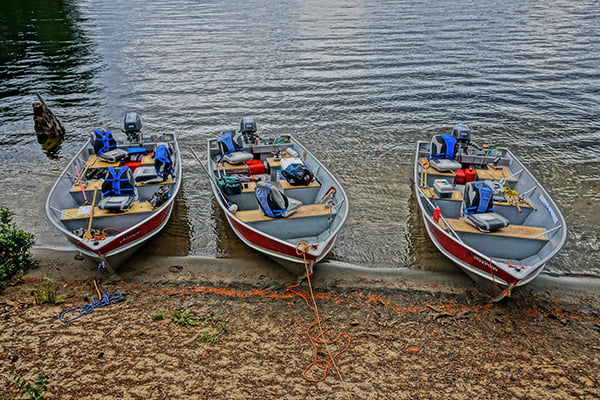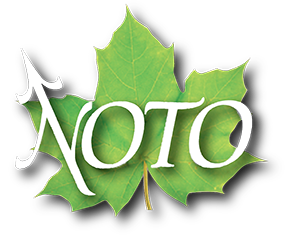Boating Regulations
For Operators:
Be sure to register your boats every year! Operators of unregistered boats could be fined.
You can register Your Boats online by Clicking this Link (tc.canada.ca)
If Your Guests Bring Their Own Boat:
Non-residents of Ontario who bring their own boats do not need to show proof of competency unless their boat will remain in Canada for more than 45 consecutive days. Guests with their own boats simply need to comply with the requirements of their home state with respect to operator competency AND carriage of safety equipment.
 If You Rent or Borrow a Boat in Canada:
If You Rent or Borrow a Boat in Canada:
All operators of Canadian watercraft of any size on Canadian waterways must show proof of competency.
Proof of Competency Can Take a Number of Forms:
- A Canadian Pleasure Craft Operators Card.
- A Completed Rental Boat Safety Checklist.
- Proof of competency from any state that is accredited with the National Association of State Boating Law Administrators (NASBLA). Most states are accredited – you can find details at http://www.nasbla.net/courseListing.php
A Canadian Pleasure Craft Operator Card can be obtained by taking a boating course from a Transport Canada-accredited Course Provider. Some courses are available online while others are available in a classroom setting.
Rental Boat Safety Checklists are available at many tourism operations across Ontario and are to be completed with a staff member of the vacation establishment. The staff will provide an overview of pleasure craft operation and safety as well as a review of local water hazards. Operators of a pleasure craft MUST carry either the card or the checklist on their person while they are operating the boat.
NASBLA approved boater cards are available in most states across the USA.
There may be fees charged to obtain these cards. Refer to course providers for the amount.
Rental Boat Safety Checklists
If you wish to provide the Rental Boat Safety Checklists to your guest who rent your boats, NOTO produces pads of 50 checklists in carbonless forms for ease of use. As an added feature, our checklist forms include a damages waiver that has been reviewed by insurance companies. To view our pricing list and to order them online, please click here.
Boating Restrictions for Youth
In addition to the requirement to carry a document serving as proof of competency, boat operators under the age of 16 must also comply with other requirements. Restrictions are imposed on the horsepower (hp) (or kilowatt (kW)) capacity of the motor of the boat they wish to operate.
- Youth under the age of 12 with no direct supervision may only operate a boat with a motor of up to 10 hp/7.5 kW
- Youth aged 12–15 with no direct supervision may only operate a boat with a motor of up to 40 hp/30 kW
- Youth under the age of 16, regardless of supervision, may not operate a personal watercraft (PWC)
Life Jackets:
Recent changes to the Small Vessel Regulations allow a non-resident of Canada to bring and use their own personal flotation device or life jacket legally while visiting Canada. This safety equipment must conform to the laws of their home country and be of an appropriate size and in good condition.
You are required by law to have a lifejacket or PFD (Personal Flotation Device) on board for each person on a watercraft . This includes human-powered craft. It is recommended that individuals choose red, yellow, or orange lifejackets or PFDs in order to be more visible on the water.
If you are planning on purchasing a lifejacket or PFD in Canada, look for a label that says the device has been approved by any of the organizations below:
- Transport Canada
- Canadian Coast Guard
- Fisheries and Oceans Canada
For more Visitor Information regarding Canadian Boating Regulations, please visit the Transport Canada website: https://tc.canada.ca/en/marine-transportation/marine-safety/visitor-information
For additional safety tips and requirements please click here
Working Near Water & Dock Health and Safety Policy
It is strongly encouraged that every business has an employee manual on site which clearly sets out the employees rights and expectations under the Employment Standards Act and Occupational Health and Safety Act, the expectations you set out for your employees while they are working, and a clear list of health and safety policies in place at your business.
Part of these health and safety policies should include a Working Near Water & Dock Policy. NOTO has drafted a health and safety policy which you can use at your business. To view a copy of this policy, please click here. This policy is also a part of NOTO’s customizable Employee Manuals which you can order by clicking here.



